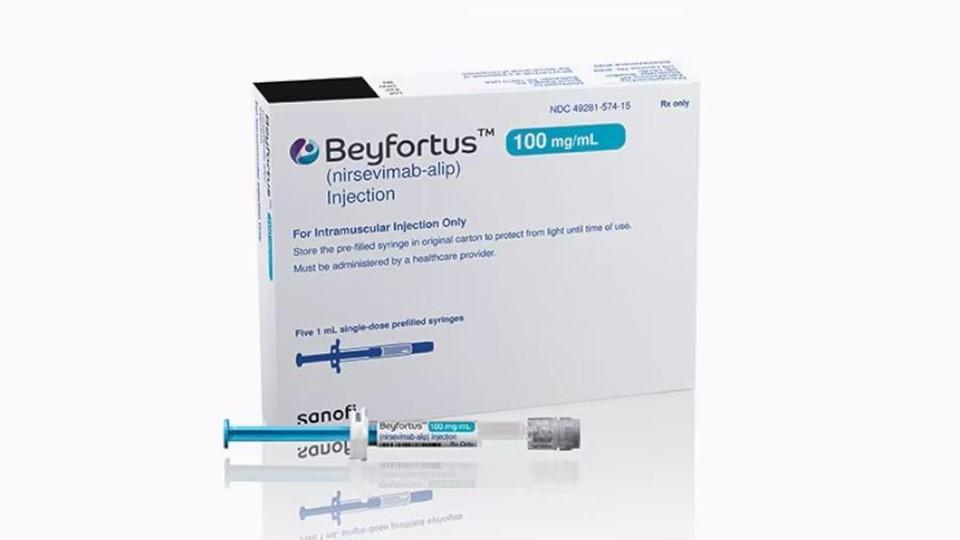AZ, Sanofi’s Beyfortus cleared in China for RSV prevention

AstraZeneca and Sanofi’s long-acting antibody Beyfortus has been approved in China for the prevention of respiratory syncytial virus (RSV) infections in newborns and infants, opening up a major new market for the would-be blockbuster.
Beyfortus (nirsevimab) has also been approved in the US and Canada, EU, and GB, and is under review in other countries, including Japan, as a one-dose preventative treatment to protect infants born during or entering their first RSV season from lower respiratory tract infection (LRTI) with the virus.
It is the first RSV prevention option to be approved in China that can be used in a broad infant population, including protecting those infants born healthy at term, or preterm, or with specific health conditions that make them vulnerable to severe RSV disease and is expected to be available in the upcoming 2024-2025 RSV season.
Beyfortus’ nearest rival is Pfizer’s RSV vaccine Abrysvo, which has also been approved in some markets for the protection of newborns from RSV in the first six months of life when given to mothers during pregnancy. So far, Abrysvo has not been authorised in China.
It replaces an older preventative antibody Synagis (palivizumab) that has been available for many years, but was never widely adopted because it requires multiple doses and was quite expensive.
The Chinese approval comes shortly after clinical data from the UK, France, and Germany on Beyfortus was published in the New England Journal of Medicine (NEJM), showing that the antibody could cut RSV-related hospitalisations by 83%.
The HARMONIE study in more than 8,000 infants randomly assigned to either Beyfortus or standard care during the winter season in conditions that approximated “real-world” settings also showed that the antibody reduced severe RSV LRTIs by 76%, and was tolerated well with only a few minor side effects.
That has already led to calls in the UK to extend the seasonal RSV immunisation programme to all newborn infants, sparing them from severe RSV disease and taking some of the pressure off hospital services.
Commenting on the data, Prof Peter Openshaw, professor of experimental medicine at Imperial College London (ICL), said some countries, including Spain and Luxembourg, have already decided to use Beyfortus to prevent RSV disease in all infants without contraindications.
“We are waiting to see what effect it has on the circulation of the virus in communities, on viral evolution (we are not certain if escape mutants will develop), and on the wider health of babies and young children (some studies suggest that delaying RSV infection beyond the critical first six months of life will lead to reduced rates of recurrent wheeze and asthma diagnosis),” he added.
AZ has taken the lead on the development and manufacturing of the new drug, with Sanofi responsible for commercialisation, and recording sales, with the two companies sharing profits. There are already signs of strong take-up in the market, with supplies of the drug prioritised for use in vulnerable newborns in the US as the 2023-2024 RSV season got underway.













